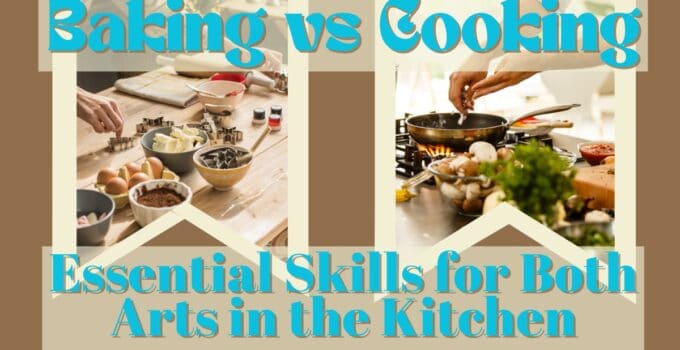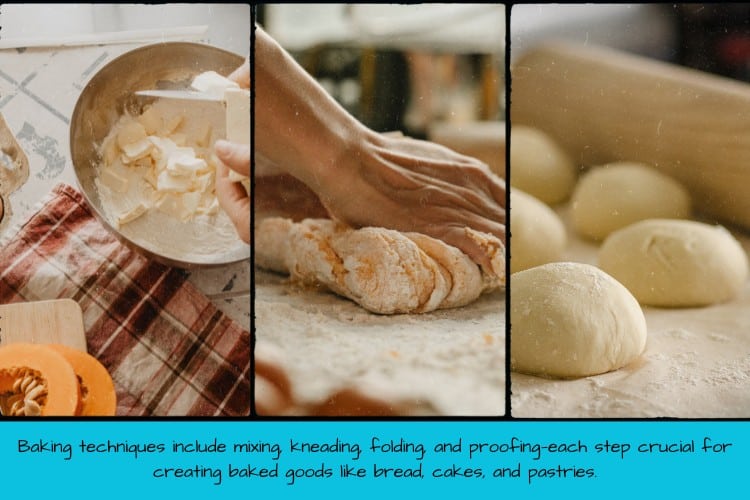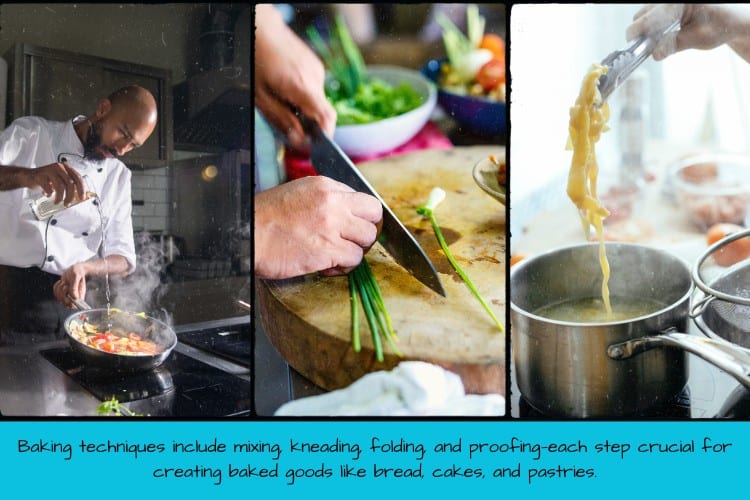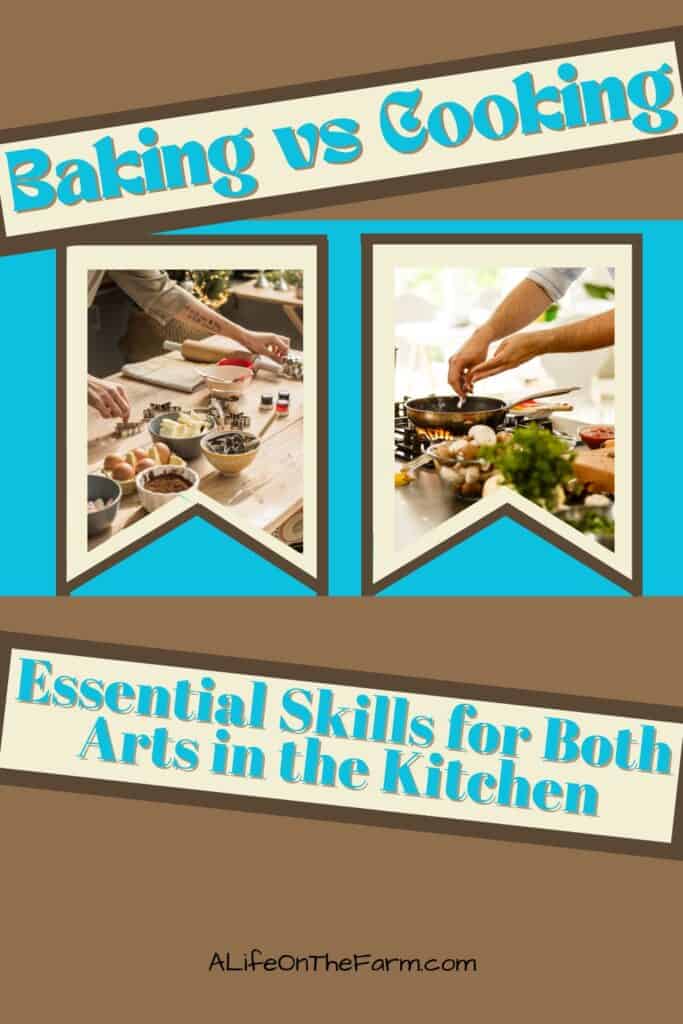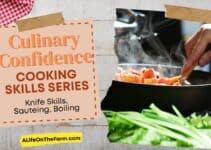Understanding the Key Differences Between Baking and Cooking
When exploring the culinary arts, understanding the key differences between baking and cooking is essential for both novice and experienced chefs. While both processes involve preparing food, they differ significantly in techniques, precision, and outcomes.
Baking is often viewed as a science. It requires precise measurements of ingredients and strict adherence to recipes to achieve the desired texture and flavor. Baking techniques include mixing, kneading, folding, and proofing—each step crucial for creating baked goods like bread, cakes, and pastries. The chemical reactions that occur during baking are sensitive to temperature and timing; even a slight deviation can result in unintended results.
On the other hand, cooking is generally more forgiving and creative. It encompasses a wide range of methods including sautéing, boiling, grilling, and roasting. Cooking techniques allow for improvisation with flavors and ingredients; cooks can adjust seasonings based on taste preferences or available ingredients without compromising the dish’s integrity.
In summary, while baking vs cooking may seem similar at first glance as forms of food preparation within the culinary arts comparison framework, their fundamental differences lie in their approaches—baking demands precision while cooking celebrates creativity. Understanding these distinctions can enhance your culinary skills whether you prefer one method over the other or wish to master both!
The Fundamental Skills Required for Baking Success
Baking is both an art and a science, and mastering it requires a solid foundation of essential skills. One of the most critical baking skills is measuring ingredients accurately. Precision in measurement ensures that your recipes turn out as intended, as even slight variations can significantly affect the final product.
Understanding yeast is another fundamental skill for successful baking, particularly when working with bread. Knowing how to activate yeast properly and recognizing its role in fermentation will help you achieve that perfect rise and texture.
Oven temperature control is equally vital; different baked goods require specific temperatures to yield optimal results. Familiarizing yourself with your oven’s quirks—such as hot spots or inaccurate temperature readings—can make a significant difference in your baking outcomes.
Finally, mastering pastry techniques is essential for creating delicious desserts and pastries. From rolling dough to creating flaky crusts, these techniques are foundational for elevating your baking repertoire. By honing these fundamental skills, you’ll be well on your way to achieving baking success.
Essential Cooking Skills Every Home Chef Should Master
Mastering essential cooking skills is crucial for any home chef looking to elevate their culinary game. One of the foundational skills is knife skills, which not only enhance safety in the kitchen but also improve efficiency and presentation. Learning how to chop, dice, and julienne ingredients correctly can save time and ensure even cooking.
Flavor pairing is another vital skill that can transform simple dishes into extraordinary meals. Understanding which ingredients complement each other allows chefs to create balanced flavors that tantalize the palate. Experimenting with different herbs, spices, and textures can lead to delightful culinary discoveries.
Sautéing techniques are essential for achieving perfectly cooked vegetables and proteins. Knowing when to add ingredients based on their cooking times ensures a harmonious blend of flavors and textures in your dishes. Additionally, mastering the art of seasoning food effectively is key; it involves knowing how much salt or acid to use at various stages of cooking to enhance the natural flavors of your ingredients.
By honing these essential cooking skills—knife skills, flavor pairing, sautéing techniques, and effective seasoning—home chefs can build a solid foundation for creating delicious meals with confidence.
How Baking and Cooking Complement Each Other in the Kitchen
Baking and cooking are two essential techniques that complement each other beautifully in the kitchen, each bringing unique skills and flavors to the table. While baking typically involves precise measurements and chemical reactions, cooking often allows for more creativity and improvisation. Understanding how these two disciplines interrelate can enhance your culinary repertoire.
For instance, many baked goods benefit from ingredients commonly used in cooking. Herbs and spices, often reserved for savory dishes, can elevate baked items like breads or muffins when used thoughtfully. Conversely, techniques learned through baking—such as emulsification or tempering—can enhance your cooking skills by providing a deeper understanding of texture and flavor development.
The timing involved in both practices can be harmonized for efficient meal preparation. For example, while a cake is baking in the oven, you might take that time to prepare a savory sauce or sauté vegetables. This synergy not only saves time but also allows for a well-coordinated meal experience.
In essence, by embracing both baking and cooking as interconnected skills rather than separate entities, home cooks can create an array of delicious dishes that showcase their versatility in the kitchen.
The Importance of Precision in Baking vs. Creativity in Cooking
When it comes to the culinary arts, the distinction between baking and cooking often boils down to two fundamental concepts: precision and creativity. In baking, precision is paramount. The science behind baking requires exact measurements and specific techniques to ensure that ingredients react correctly. A slight variation in flour or sugar can lead to a cake that collapses or cookies that spread too much. Therefore, following recipes strictly is essential for achieving consistent results in baked goods.
On the other hand, cooking embodies a more flexible approach where creativity thrives. While some foundational techniques are important, cooks often enjoy the freedom to improvise in the kitchen. This allows for personal expression through flavor combinations and ingredient substitutions based on availability or preference. Chefs may start with a basic recipe but adapt it by adding spices or experimenting with different cooking methods.
Understanding when to apply precision versus when to embrace creativity can enhance your culinary skills significantly. For those venturing into both realms, recognizing these differences can lead to more successful outcomes whether you are crafting a delicate soufflé or whipping up a hearty stew.
Conclusion: Embrace Both Arts to Enhance Your Culinary Journey at Home!
Embracing both the art of cooking and the science of culinary techniques can significantly enhance your culinary journey at home. By understanding the foundational principles behind cooking methods, flavor pairings, and ingredient interactions, you can elevate your dishes to new heights. This fusion of art and science not only fosters creativity but also encourages experimentation in the kitchen.
As you explore various cuisines and techniques, remember that each dish is an opportunity to express yourself while also honing your skills. Whether you’re a novice or an experienced home cook, integrating these elements into your cooking routine will lead to more satisfying meals and a deeper appreciation for the culinary arts. So gather your ingredients, unleash your creativity, and enjoy every moment spent in the kitchen!
A Life on the Farm is beginning a series of informational and instructional posts concerning various aspects of the much needed cooking skills we have been discussing. Be sure to join our community and come back for that and more!
MORE WAYS TO CONNECT
We also, as a homesteading family, have a variety of blogs that might interest you.A Life on the Farm focuses on the more personal side of the homesteading life. We discuss subjects like family, parenting, relationships, homeschooling, cooking, canning and so much more.
Two Oaks Farm Talkconcerns the more technical side of homesteading. We discuss subjects like gardening, food prep, and farm building and construction with lots of tutorials!
Farm Raised Familyis basically a hub for everything under the Two Oaks Farmstead umbrella. You can learn a great deal about all parts of the farmstead there. TheFarm Raised Family blogfocuses on financial matters such as budgeting, saving, and more and on current events affecting families.
You can also have a more in depth look at all that we do by visiting ourTwo Oaks Farmstead YouTube Channeland be sure to subscribe so that you don’t miss a thing!
Farm Life and Freedomis the new podcast we are in the process of launching! It is going to be so much fun! You could also check in with our Farm Life and Freedom Youtube Channel.
Two Oaks Farmsteadis the farm store… the one that holds the umbrella! Check us all out and join us, not only on our blogs andFarm Life and Freedom podcastbut come join the fun on Facebook, Instagram, Twitter… wherever you get social!

